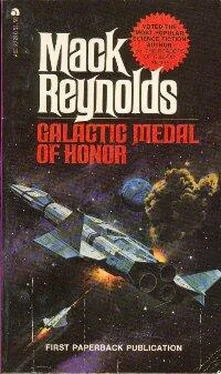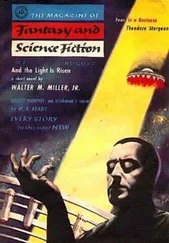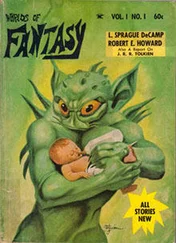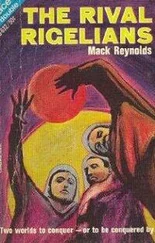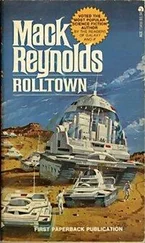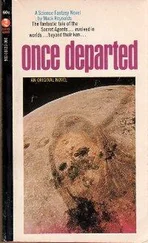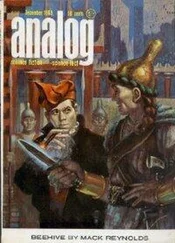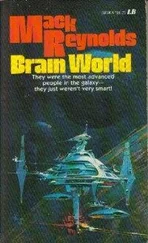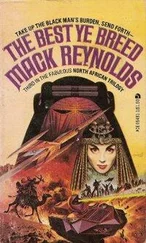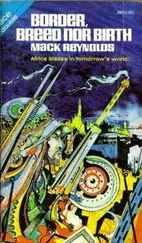Galactic Medal of Honor
by Mack Reynolds
After his craft had been mechanically wheeled away, Donal Mathers took one of the little hovercarts over to the squadron non-resident officers’ quarters and showered, used a depilatory on his beard, then opened his locker and brought forth a dress uniform. He had thrown his coveralls into a disposal chute. He dressed carefully, checked himself out at the full length tri-di mirror, put his cap on his head, took a deep breath in unhappy anticipation, and headed for his fate.
The hovercart took him the kilometer or so to the administration buildings of the spaceport. He headed for the king size doors and the identity screen picked him up, checked him out in less than a second, and the doors opened before him.
Inside was bustle, the amount of bustle to be expected of a military establishment responsible for some two hundred spacecraft. Don Mathers was used to it. He made his way briskly to his destination.
A uniformed girl looked up from her work at the reception desk.
Don said, “Sub-lieutenant Donal Mathers, reporting to Commodore Bernklau.”
She nodded and did the things receptionists do, and shortly looked up and said, “Go right in, Lieutenant.”
He was about thirty years of age, slim of build and with a sort of aristocratic handsomeness in the British tradition. His hair was not quite blond, his eyes dark blue, his nose high and very slightly hooked. He affected a small moustache. He cut quite a nice figure in his light blue space pilot’s uniform.
Now he snapped a crisp salute to his superior and said, “Sub-lieutenant Donal Mathers reporting from patrol, sir.”
The commodore looked up at him, returned the salute in an off-hand manner and looked down into a screen set into the desk. He murmured, “Mathers. One Man Scout V-102. Sector A22-K223.”
Commodore Walt Bernklau was a small man in the Space Service fashion. Overgrown men were no longer in vogue. Smaller men take up less room in a spaceship, breathe less air and require less food. It was not that a six-footer who weighed over 180 pounds was taboo in space but there was, perhaps, an unstated prejudice against him. Down through the centuries it had been the big man who received the attention, the small man who was a bit scorned. But those had been the days when war was waged with sword and battle-ax, and work performed by the muscular. Things had been reversed. Even women, perhaps instinctively, had come to prefer smaller men.
The commodore wore the tired air of he who commands large numbers, of he who makes weighty decisions every day. He disliked the job but he was good at it. Pushing sixty, he looked forward to retirement.
He took in the younger man now and said, “You’ve been out only five days, Lieutenant.”
Don Mathers said stiffly, “Yes, sir. On the third day I seemed to be developing trouble in my fuel injectors. I stuck it out for a couple of days but then decided that I’d better come in for a check.” He paused only momentarily before adding, “As per instructions, sir.”
The commodore nodded. “Ummm, of course. In a One Man Scout you can hardly make repairs in space. If you have any doubts at all about your craft, orders are to return to base. It happens to every pilot at one time or another.”
“Yes, sir.”
The commanding officer looked down into his screen again. “However, Lieutenant, it has happened to you four times out of your last six patrols.”
Don Mathers said nothing. His face remained expressionless.
The commodore tilted his head slightly to one side and said, “The mechanics report that they could find nothing wrong with your engines, Lieutenant.
The space pilot nodded agreement to that. “Yes sir. Sometimes, sir, whatever is wrong fixes itself. Possibly a spot of bad fuel. It finally burns out and you’re back on good fuel again. But by that time you’re also back to the base.”
The commodore said impatiently, “I don’t need a lesson in the idiosyncrasies of the One Man Scout, Lieutenant. I piloted one for nearly five years. I know their shortcomings—and those of their pilots.”
“I don’t understand, sir.”
The commodore looked down at the ball of his thumb. “You’re out in deep space for anywhere from two weeks to a month. All alone. You’re looking for Kraden ships which practically never turn up.”
“Yes, sir,” Don said meaninglessly.
The commodore said, “We here at Command figure on you fellows getting a touch of space cafard once in a while and, ah, imagining something wrong in the engines, getting your wind up and coming in. But…” at this point the commodore cleared his throat, “… four times out of six? Are you sure you don’t need a psych, Lieutenant?”
Don Mathers flushed. He said, “No, sir. I don’t think that I do.”
The other’s voice went expressionless. “Very well, Lieutenant Mathers. You’ll have the customary three weeks leave before going out again. Dismissed.”
Don saluted snappily, wheeled and marched from the office.
Outside, in the corridor, he muttered an obscenity under his breath. What in the hell did that chair-borne brass hat know about space cafard? About the depthless blackness, the wretchedness of free fall, the claustrophobia, the tides of primitive terror that sometimes swept you when you realized that you were far away from the environment that had given you birth. That you were alone, alone, alone. A million, a seemingly million-million miles from your nearest fellow human. Space cafard, in a craft whose cabin was little larger than a good-sized closet, what did the commodore know about it?
Don Mathers had conveniently forgotten the other’s claim to five years service in the One Man Scouts. And in the commodore’s day the small spaceships had been tinier still and with less in the way of safety devices and such amenities as video-tape entertainment.
Still fuming with inner indignation, he recovered his hovercart and made his way from Space Command Headquarters, Third Division, to Harry’s Nuevo Mexico Bar, which was located on the outskirts of the spaceport, just beyond the main entrance. It was a popular watering hole if only because it was the first one available when you left the base. In a way it was an anachronism since it had a live bartender. The trend, these days, was toward automation even in restaurants and bars. Live personnel in such establishments meant that their labor was not available for industry, for the all-out effort against the Kraden enemy. Harry, of course, was beyond retirement age and no pressure was put upon him to fold up his beloved establishment so that he could work elsewhere.
It was hardly conceivable to Don Mathers that anyone in his right mind would be so smitten by space that after a near lifetime of work as a second class mechanic, he would open a bar near the spaceport so that he could continue to associate with active spacemen and those who aided them. But that was Harry Amanroder.
Don dismissed the hovercart and it turned and headed back for the base motor pool. He entered the Nuevo Mexico and found it all but empty. There were a couple of mechanics in soiled coveralls over in a booth in the corner; both of them women, both of them drinking exotic-looking cocktails that made Don wince.
He climbed up onto a stool at the bar and beckoned to Harry, which was hardly necessary since the old-timer was already headed in his direction.
Harry Amanroder was somewhere in his mid-sixties, was heavy-set and big, which was possibly one of the reasons he had never been able to get into space, his life-long dream. His had been the fate to serve those who had attained his dream—and most of them, including Don Mathers, hating it. His pudding face shone when he served an active spaceman, his eyes lit up when he was able to lean on his bar and listen in on their conversation. He loved them all and most of them were tolerant of him.
Читать дальше
